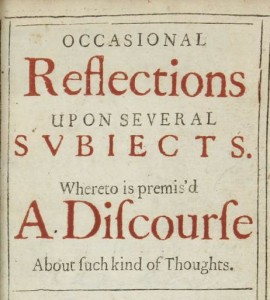 This month, we had three cases of the week: First, we looked at German Brexit-related cases. The second case dealt with the pitfalls that translations can create under the EU Service Regulation and finally, we reported on the U-turn of the Munich Court of Appeals on the right time for the judicial review of arbitrator appointments. And here’s a recap of other recent developments:
This month, we had three cases of the week: First, we looked at German Brexit-related cases. The second case dealt with the pitfalls that translations can create under the EU Service Regulation and finally, we reported on the U-turn of the Munich Court of Appeals on the right time for the judicial review of arbitrator appointments. And here’s a recap of other recent developments:
De-selection of Legal Committee’s Chairperson
For the first time in the Federal Republic’s parliamentary history, a committee of the Bundestag has unseated its chairperson. The Legal Committee (Rechtsausschuss) voted to remove Stephan Brandner, an MP for the far-right AfD, from his office on the basis that his rhetoric and behaviour were unacceptable and damaging to the committee’s reputation. All parties except for his own voted against Brandner. Under the Bundestag’s internal rules of business, opposition parties are entitled roles such as committee chairs in proportion to their share of seats. It will remain to be seen whether the AfD challenges this vote, or if they nominate a new chairperson, and if so, whom. If you are interested in the constitutional niceties of the matter, over at Verfassungsblog, there’s more on the topic.
Email Communication between Lawyers and Clients
As of 1 January 2020, the Rules of Professional Practice (Berufsordnung für Rechtsanwälte; BORA) for German lawyers will catch up with reality: Simple, unencrypted email communication between lawyers and their clients is now expressly regulated, and permitted, in Section 2 BORA. The new language inserted into the Rules reads: “The use of an electronic or other means of communication between lawyer and client, which is associated with risks to the confidentiality of this communication*, is permitted in any event if the client consents to it. Consent shall be deemed to have been given if the client proposes or begins this means of communication and continues to do so after the lawyer has drawn attention to the risks, at least in general terms and without technical details.”
* read: unencypted email….
Bundestag Passes Law to Create Permanent Monetary Threshold for Non-Admission Complaints
Complaints against the non-admission of an appeal (Nichtzulassungsbeschwerde) to the Federal Supreme Court (Bundesgerichtshof) will continue to require that the amount in dispute (Streitwert) exceeds EUR 20,000. On 14 November 2019, the Bundestag decided to permanently enshrine the existing limit in the Code of Civil Procedure (Zivilprozessordnung, ZPO) in order prevent the court from being overburdened with such complaints.
The monetary threshold was first introduced, on a temporary basis, in 2002, at the time of the last major reform of the ZPO. Since, it has been extended several times, last in 2018. Without a new Bundestag resolution, it would have expired at the end of 2019. From an access to justice point of view, the threshold is highly problematic. However, estimates that without the threshold, the Federal Supreme Court would could face twice as many cases for which it would lack capacity have persuaded the legislature.
European Class Actions
Finally, the European Union’s initiative to introduce its brand of class action progresses: Last week, the Council reached agreement on a draft directive on representative actions for consumers.
